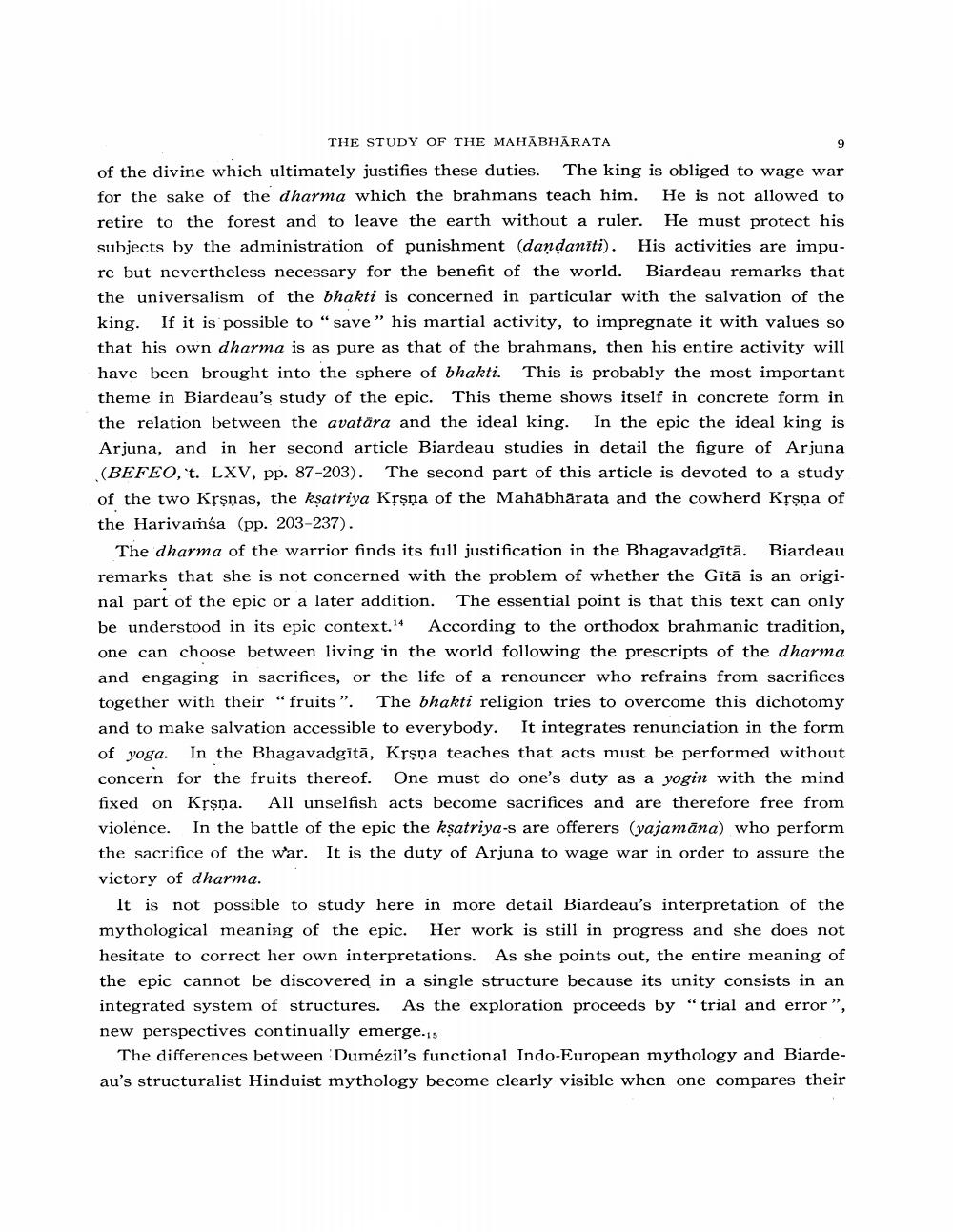Book Title: Study Of Mahabharata Author(s): J W De Jong Publisher: J W De Jong View full book textPage 9
________________ THE STUDY OF THE MAHABHARATA of the divine which ultimately justifies these duties. The king is obliged to wage war for the sake of the dharma which the brahmans teach him. He is not allowed to retire to the forest and to leave the earth without a ruler. He must protect his subjects by the administration of punishment (dandaniti). His activities are impure but nevertheless necessary for the benefit of the world. Biardeau remarks that the universalism of the bhakti is concerned in particular with the salvation of the king. If it is possible to "save" his martial activity, to impregnate it with values so that his own dharma is as pure as that of the brahmans, then his entire activity will have been brought into the sphere of bhakti. This is probably the most important theme in Biardeau's study of the epic. This theme shows itself in concrete form in the relation between the avatära and the ideal king. In the epic the ideal king is Arjuna, and in her second article Biardeau studies in detail the figure of Arjuna (BEFEO, 't. LXV, pp. 87-203). The second part of this article is devoted to a study of the two Krşņas, the ksatriya Kșşņa of the Mahābhārata and the cowherd Krşņa of the Harivamsa (pp. 203-237). The dharma of the warrior finds its full justification in the Bhagavadgitā. Biardeau remarks that she is not concerned with the problem of whether the Gītā is an original part of the epic or a later addition. The essential point is that this text can only be understood in its epic context. 14 According to the orthodox brahmanic tradition, one can choose between living in the world following the prescripts of the dharma and engaging in sacrifices, or the life of a renouncer who refrains from sacrifices together with their “fruits". The bhakti religion tries to overcome this dichotomy and to make salvation accessible to everybody. It integrates renunciation in the form of yoga. In the Bhagavadgitā, Krşņa teaches that acts must be performed without concern for the fruits thereof. One must do one's duty as a yogin with the mind fixed on Krşņa. All unselfish acts become sacrifices and are therefore free from violence. In the battle of the epic the ksatriya-s are offerers (yajamāna) who perform the sacrifice of the war. It is the duty of Arjuna to wage war in order to assure the victory of dharma. It is not possible to study here in more detail Biardeau's interpretation of the mythological meaning of the epic. Her work is still in progress and she does not hesitate to correct her own interpretations. As she points out, the entire meaning of the epic cannot be discovered in a single structure because its unity consists in an integrated system of structures. As the exploration proceeds by "trial and error", new perspectives continually emerge.15 The differences between Dumézil's functional Indo-European mythology and Biardeau's structuralist Hinduist mythology become clearly visible when one compares theirPage Navigation
1 ... 7 8 9 10 11 12 13 14 15 16 17 18 19 20 21
